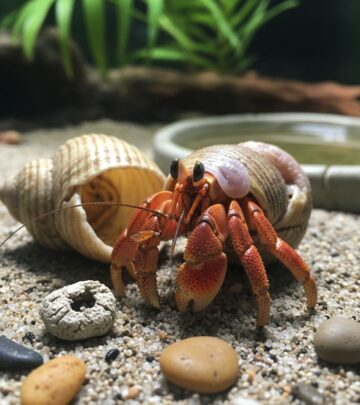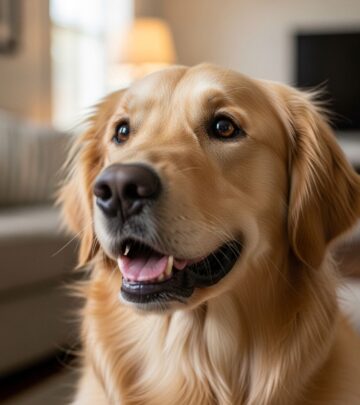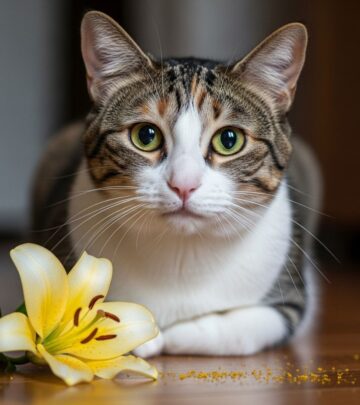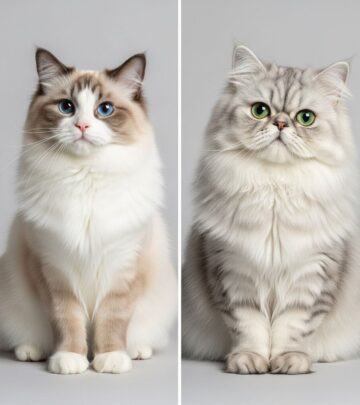F6 Savannah Cat: Breed Profile, Traits, and Care Guide
Discover the striking F6 Savannah cat—its unique traits, care requirements, and personality, perfect for those seeking an exotic feline companion.
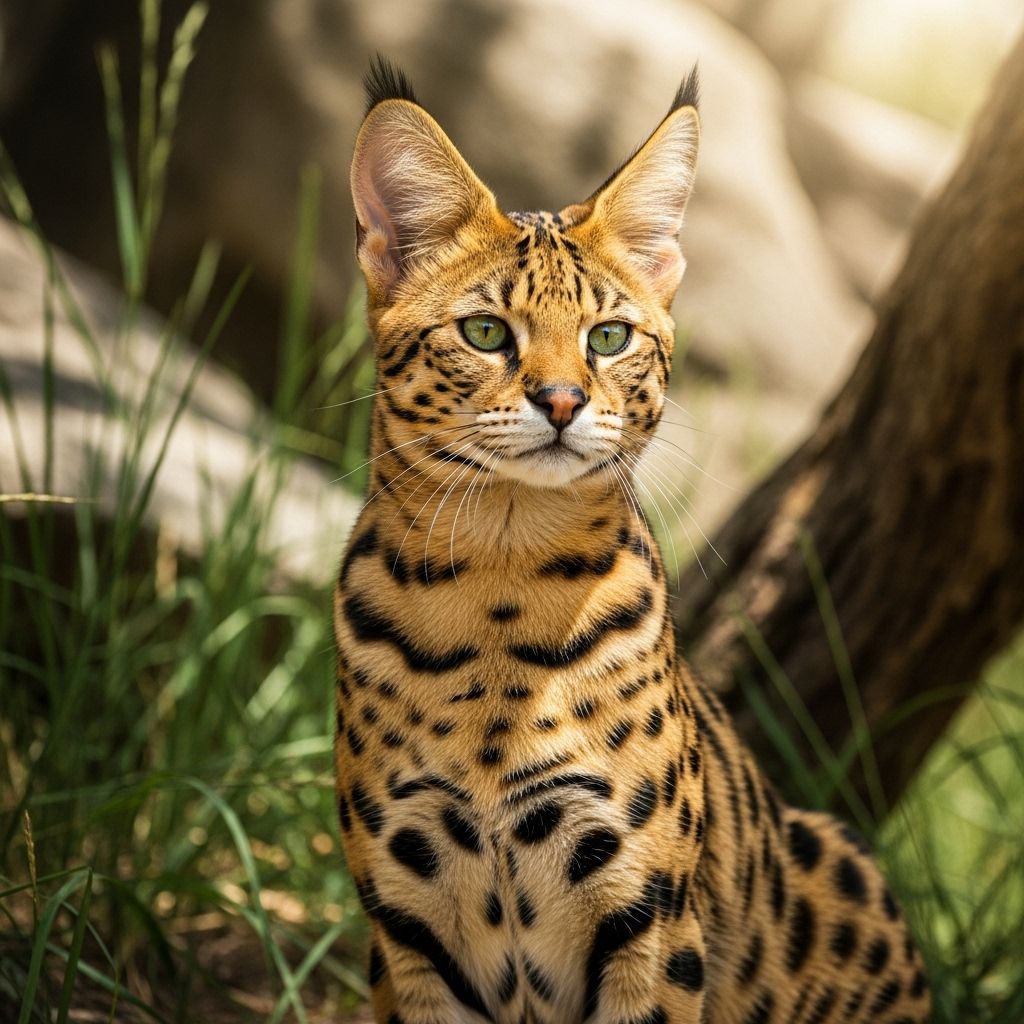
F6 Savannah Cat: An Exotic and Striking Feline Companion
The F6 Savannah cat represents one of the later generations of this extraordinary hybrid breed. Known for its stunning appearance and unique personality, the F6 Savannah merges the wild elegance of the African Serval with the companionable nature of domestic cats. This guide explores the defining traits, care needs, personality, history, health, and suitability of F6 Savannah cats for pet lovers seeking a truly distinctive companion.
Breed Origins and History
The Savannah cat breed emerged in the 1980s, originating from crosses between a domestic cat and the wild African Serval. The first Savannah kitten was born in 1986, combining serval and domestic features in striking fashion. Early generations (F1-F2) contain higher percentages of serval DNA and tend to be larger, wilder, and sometimes more challenging as pets. Later generations like the F6 Savannah are six generations removed from the original Serval, exhibiting more predictable domestic cat traits while retaining their exotic charm.
- F1-F3 generations: Higher percentage of Serval DNA, more wild behaviors.
- F4-F8 generations: Lower Serval DNA content, more predictable domestic cat behaviors.
- F6: The sixth filial generation; considered well-adjusted to home life and legal in more places due to less wild ancestry.
Physical Characteristics
F6 Savannah cats are renowned for their exotic looks, echoing the African Serval while comfortably fitting into domestic settings. Their distinctive features are a testament to their hybrid origin, and each generation refines these traits for home life.
Key Physical Traits
- Size: Appears larger than typical domestic breeds due to tall, slender legs and body. F6 Savannahs weigh 12-18 pounds on average, but may seem bigger due to their height and lean build.
- Coat: Short, slightly coarse, and distinctly spotted or marbled. Common colors include black, brown spotted tabby, silver, black smoke, and rare diluted shades (blue, cinnamon, chocolate).
- Head & Neck: Small, taller than wide with a long neck. The face is more triangular and exotic than typical domestic cats.
- Ears: Large, upright, rounded, and set high—featuring ocelli (eye-like spots) on the back, a hallmark of Serval heritage.
- Eyes: Hooded eyes, “boomerang” shaped, typically gold, brown, or green in adults. “Cheetah-tear” lines often run from the corners of the eyes down the nose.
- Tail: Shorter than average, thick, with bold black rings and a solid black tip.
- Legs: Exceptionally long, lending height and grace. The hind end often stands higher than the shoulders.
| Trait | F6 Savannah | Domestic Cat (Average) |
|---|---|---|
| Weight | 12–18 lbs | 8–12 lbs |
| Height | Tall, long legs | Short–Medium |
| Coat | Spotted/Marbled (Serval ancestry) | Solid/Tabby, wide variation |
| Ears | Large, upright, ocelli present | Medium/Small, usually plain |
| Tail | Short, thick, with rings | Long, slim |
Personality and Temperament
The F6 Savannah cat is celebrated for a unique blend of traits not typically found in most cats, including dog-like loyalty, boundless curiosity, and pronounced playfulness. These cats are highly engaging companions, well-suited for individuals or families seeking an interactive pet. Understanding their distinct personality is crucial for happy cohabitation.
Personality Highlights
- High energy: Enjoys daily play and interactive activity. Requires mental stimulation and physical exercise.
- Intelligence: Exceptionally smart, learning tricks and even opening doors or faucets. Enjoys puzzle toys and games like fetch.
- Loyalty: Bonds tightly with family, often greeting people at the door and following them everywhere.
- Curiosity: Persistent explorers; expect to find your Savannah investigating every nook and cranny.
- Affection: Not usually lap cats, but enjoy being near their humans, delivering affection in their own way (rubbing, headbutts, following).
- Vocalization: Can be quite vocal, expressing themselves with chirps, meows, and sometimes hisses reminiscent of the Serval.
- Water-loving: Many Savannahs seek out water, playing in sinks or even showers.
Suitability
- Best for experienced cat owners or those willing to invest time in training and enrichment.
- Good with children, dogs, and other cats when properly socialized from kittenhood.
- Exercise caution with small pets (birds, rodents, fish) due to strong hunting instincts.
- Not ideal for households unable to provide ample attention and stimulation.
Care and Maintenance
While the F6 Savannah cat has lower Serval ancestry, it still retains the high-energy needs and smart behavior of its wild ancestors. Caring for this breed requires dedication to exercise, mental stimulation, and appropriate socialization.
Diet and Nutrition
- High quality protein: Lean meats or specially-formulated cat foods suit their active lifestyles.
- Fresh water should always be available.
- Monitor calorie intake to prevent obesity, adjusting for activity levels.
Exercise and Play
- Daily play using interactive toys, wand teasers, and games like fetch.
- Access to climbing structures, shelves, and cat trees is highly beneficial.
- Many F6 Savannahs enjoy leash walks, which can provide safe outdoor experiences.
- Provide puzzle feeders and toys for mental stimulation.
Grooming
- Low maintenance: Short, coarse coat requires weekly brushing to minimize shedding.
- Regular ear and dental checks, as with all breeds.
- Bathe only as needed, although many Savannahs are water-tolerant.
Training Tips
- Start socialization early, exposing kittens to various people and pets.
- Positive reinforcement works best for teaching tricks and leash training.
- Create a safe routine to channel their intelligence and curiosity productively.
Health and Lifespan
F6 Savannahs generally enjoy robust health thanks to the genetic vigor of hybridization, but responsible breeding and preventive care remain vital.
Common Health Issues
- Lifespan: 12 to 20 years with proper care.
- Genetic diversity in hybrids can reduce incidence of inherited diseases, but vigilance against heart issues and routine veterinary checks is essential.
- Vaccination and regular parasite prevention recommended.
Legal and Ethical Considerations
Ownership of Savannah cats is subject to local regulations because of their exotic ancestry—restrictions are more common for early-generation Savannahs (F1-F4). The F6 Savannah is typically classified as a domestic cat, making legal ownership easier, but always confirm with local laws before purchase.
Comparison: Savannah Cat vs Bengal Cat
| Feature | F6 Savannah Cat | Bengal Cat |
|---|---|---|
| Origin | Serval x domestic cat hybrid (6th gen) | Asian leopard cat x domestic cat hybrid |
| Size | Tall, lean, 12–18 lbs | Medium-large, 8–15 lbs |
| Coat | Spotted, marbled, short, coarse | Spotted, marbled, short, soft |
| Energy Level | High | High |
| Legal Restrictions | Possible; typically fewer for F6 | Rare |
| Temperament | Loyal, curious, playful, not a lap cat | Playful, affectionate, social |
| Water Interest | High | Moderate |
Finding and Choosing an F6 Savannah Cat
If you are enamored with the idea of owning an F6 Savannah, careful consideration is vital. Seek reputable breeders who prioritize health, legality, and responsible socialization. Ask about generational lineage, expected temperament, and health screening protocols before committing to adoption.
- Verify breeder credentials and references.
- Expect relatively high adoption costs due to the rarity and breeding investment.
- Consider adoption through breed-focused shelters if available.
Frequently Asked Questions (FAQs)
Q: Are F6 Savannah cats good with children and other pets?
A: Yes, F6 Savannah cats are typically great companions for children and well-socialized pets, provided early socialization is practiced. Exercise caution with small animals due to the Savannah’s hunting instincts.
Q: How much exercise does an F6 Savannah cat require?
A: They need daily interactive play, enrichment activities, and—ideally—leash walks. Without proper stimulation, they may grow bored and mischievous.
Q: What is the ideal home environment for an F6 Savannah?
A: Spacious homes with vertical climbing space, secure outdoor access (leashed or enclosure), and owners able to provide plenty of attention are best. Savannahs do not fare well with neglect or lone lifestyles.
Q: Are F6 Savannah cats hypoallergenic?
A: Savannah cats are not hypoallergenic; they shed and produce typical feline allergens and proteins.
Q: What is their average lifespan?
A: F6 Savannah cats live between 12 and 20 years with proper health care and diet.
Q: Can F6 Savannah cats live indoors?
A: Yes, they adapt well to indoor living when provided with sufficient enrichment and space. Outdoor activities should always be supervised.
Q: Do F6 Savannahs require special diets?
A: They thrive best with high-quality, protein-rich diets, but do not typically require dramatic dietary deviations from other active domestic breeds.
Summary: Is the F6 Savannah Cat Right For You?
The F6 Savannah cat is ideal for those seeking a blend of exotic aesthetics, lively personality, and loyal companionship. They require commitment, space, and interactive care, rewarding owners with unique antics, affection, and undeniable beauty. If you desire an extraordinary feline that stands out in both looks and intelligence, and you are prepared for the active lifestyle they demand, the F6 Savannah cat may be the perfect addition to your home.
Read full bio of medha deb

